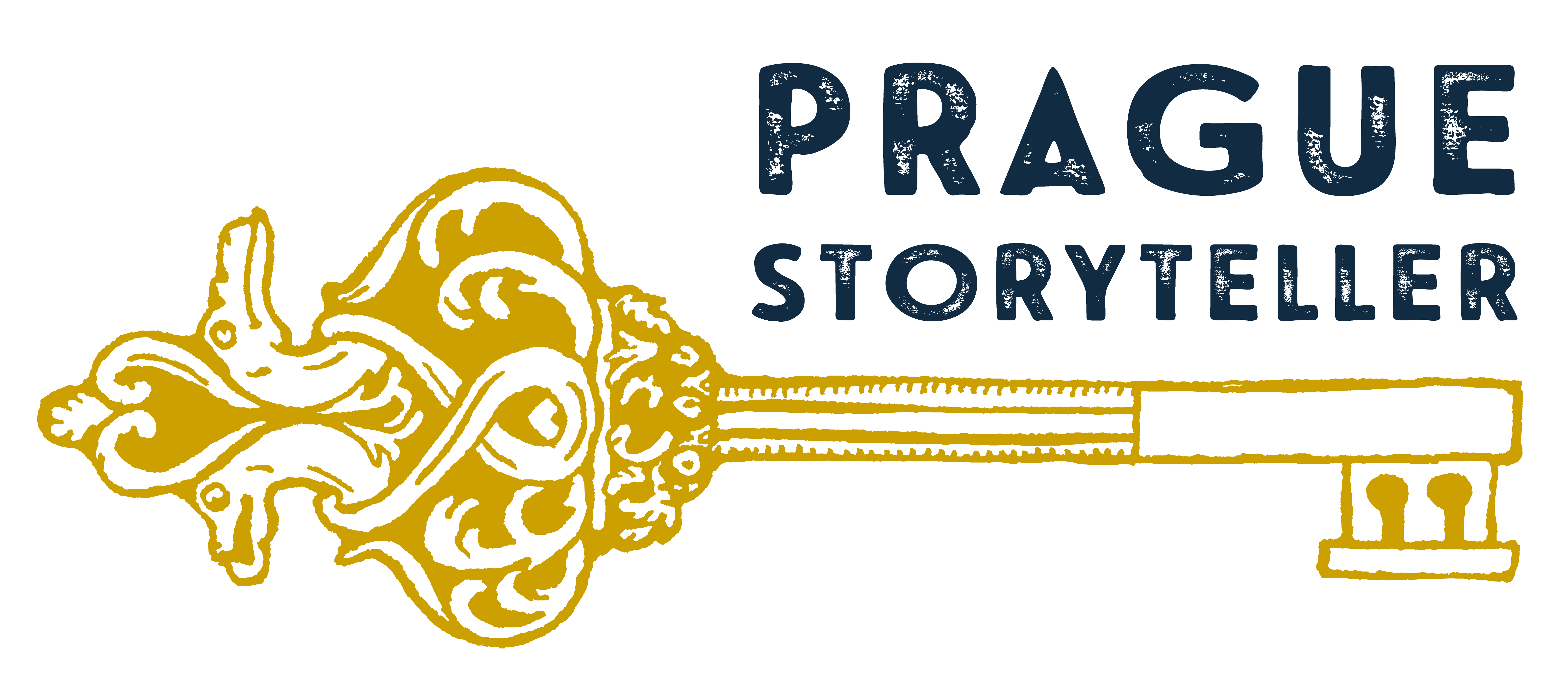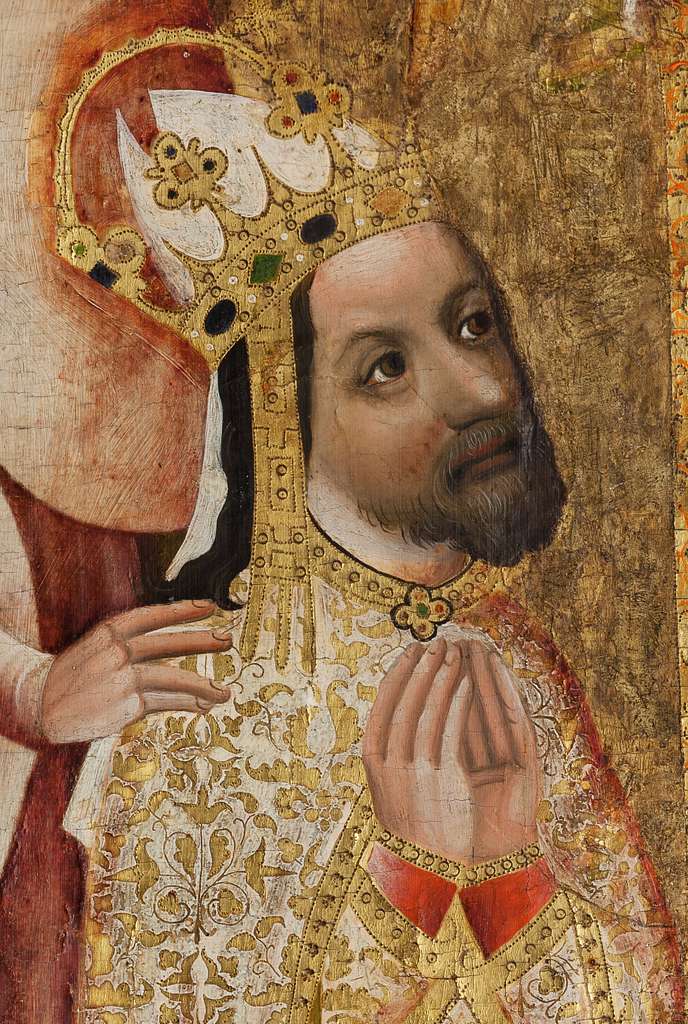…and why isn’t he Czech?
In 2005, a television poll entitled Největší Čech (The Greatest Czech) asked the question, “Who is the greatest Czech in history?” The brilliant inventor and polymath Jara Cimrman won initially, but he was soon deemed ineligible because, unfortunately, he is also a complete fiction. So, finally, the real winner was named: Charles IV, the 14th century King of Bohemia and Holy Roman Emperor. Following the announcement, many Czechs were outraged to discover that their fellow countrymen had nominated a Frenchman as the greatest Czech who ever lived. But was he really French? And why was he so great, anyway?
Charles IV is most remembered for upgrading Prague and the surrounding land from a podunk middle-of-nowhere fiefdom to the cultural center of Europe in the late 14th century. His name can be spotted throughout Prague — there’s Charles Street, Charles Square, Charles Bridge, and Charles University. His success as a ruler can be largely credited to his parents.
Although Charles is not a Czech name, his mother was from the first Czech dynasty, the Přemyslids. At that time, the Czech lands were known as Bohemia, and she was Queen Elizabeth of Bohemia (Eliška Přemyslovna). Her brother, King Wenceslaus III, was stabbed to death at the tender age of 17 when he was the only rightful heir alive. The perpetrator is a mystery, but the young king was threatening to take away the noblemen’s castles and also invade Poland, so the list of potential hitmen is rather long. The Přemyslid line would have died with him, but 18-year-old Elizabeth saved her endangered regal lineage when she married the 14-year-old King John of Luxembourg, Charles IV’s future father. Together, they united their lands and John became the new King of Bohemia.
As with all royal marriages in those days, this one was founded more on politics than on love. Imagine the wedding vows:
“Do you, John, promise to love Elizabeth in sickness and in health?”
“No. But I do promise to give her a son who I will then steal away and raise however I see fit.”
“Sounds good. I pronounce you husband and baby-haver.”
Although the marriage managed to snuff the fires of unrest that raged while Bohemia lacked an official king, it was not a happy union. The two quickly grew apart and John was greatly disliked by Czechs since he was a foreigner. He spent most of his rule outside of Bohemia, working on expanding his influence abroad, returning home just long enough to bang out a few potential heirs. Their first son was given the name Wenceslas, in honor of the most important saint in the land. This would have endeared him to the locals, as King John was still trying to convince them that he was cool. Now if you’re thinking – wait, I thought this was about Charles, who’s this Wenceslas fella? – we’re getting there, keep your shirt on.
John and Elizabeth’s relationship soon wore thin. The king became concerned that his poor reputation with the local noblemen and his own wife’s fidelity to the territory threatened to influence his first born son. So, he isolated his wife in one castle to the north of Prague, and sent his three children to another in the west. Wenceslaus was only three years old at the time. Four years later, John brought the young Wenceslaus down to Paris to be educated in the court where he himself came of age.
In Paris, the future leader was given a world-class education fit for an emperor. He learned to speak French, Latin, Italian, and German. Furthermore, at his confirmation in 1323, he was given a new name that would help him fit in at the french court: Charles. This time, instead of honoring Czech heritage, his name connected him with both his godfather, Charles IV of France, and the first Holy Roman Emperor, Charlemagne. While still only seven years old, Charles was married to Blanche of Valois (who was the same age), though they waited to consummate the marriage for some time, presumably because boys were still ‘icky’ to Blanche at that age. The court also acquainted him with some highly influential people that would later be greatly important for his rise to power — namely, his teacher, the future Pope Clement VI.
Aside from formal education, Charles’s formative experiences were on the battlefield, fighting alongside his father in the many conflicts that the King’s political ambitions had created. Although the man lacked marital devotion, he certainly expressed devotion to the battlefield. Charles was pushed to participate in both his father’s promiscuity and bellicosity, which apparently caused him great distress. He felt lingering guilt for sleeping with other women while married to Blanche, and he watched his father’s campaigns for northern Italy end in no land won but many lives lost. Perhaps this is why, when he became King himself, he would favor diplomacy over war.
The day came soon enough, when his father, having lost his sight and earned the name John “the Blind”, fought bravely in the Battle of Crecy in the Hundred Years’ War. When it was clear they were losing, he was told by his aides that he should leave the battleground to save his own life. But as we know, John wasn’t the type to leave a battle. Like a truly courageous knight, he replied, “Far be it that the King of Bohemia should run away. Instead, take me to the place where the noise of the battle is the loudest. The Lord will be with us. Nothing to fear. Just take good care of my son.” His men then bound their horses together with him at the front in order to bring him, completely blind, so far into battle that he could strike at the enemy over four times before becoming mortally wounded himself, along with the men that had tied themselves to him.
Charles thus became the new King of Bohemia. Lucky for the Bohemians, he was fond of his homeland. However, Prague castle was in shambles when he went to live in it, and so he was motivated to make it a suitable home for him and especially his spouse Blanche. He demonstrated extraordinary talent with diplomacy, making strong connections with both the clergy and the local noblemen. He used these connections to raise money via taxes and acquire power via the church. The greatest piece of luck came when his childhood tutor became Pope, and granted Prague an archbishopric (which meant a greater degree of autonomy and influence). Soon after that, Charles was declared Holy Roman Emperor.
Charles built Prague into a real city by adding the New Town in 1348, modelling the city’s layout after Jerusalem. In the square today, the sprawling Wenceslas Square stands where there was once a lively horse market. This expanded the potential for commerce and allowed the city to become a hub for artisans and merchants. He also founded Charles University in the same year – the first institution of its kind in central Europe. Another crucial and lasting contribution was his so-called ‘Golden Bull’ decree. It was a kind of constitution for the Holy Roman Empire which clarified the official process for electing future emperors, as well as the relationship between the Empire and the Czech Kingdom. In terms of architecture, this period of affluence has left its mark in Prague. There are several remarkable structures in the fashionable French Gothic style. Most significantly, Charles Bridge and the eastern half of the St Vitus Cathedral.
Charles also expanded his territory and influence through his four marriages. Blanche died at 32 from a sudden illness, and Charles remarried Anne of Palatinate a couple years later. She solidified his claim to territory in modern day Germany, and she also gave him a son. Charles, always seeking territorial expansion, began to arrange a marriage for his son which would allow him to acquire the last of the Silesian territory near today’s Polish border. Unfortunately the son, whose name was — you guessed it — Wenceslaus, died before he was two years old. Anne herself died less than a year later after falling from a horse. To avoid losing that nice Silesian territory, he decided to take the young fiance of his deceased son for himself. He and Anne of Świdnica got married in 1353 (she was 14). She, too, died young, at the age of 23. Although, she had managed to give Charles an heir. They named him Chuck. Just kidding, of course they named him Wenceslaus. This one survived long enough to become a rather disappointing king. Charles’s fourth and final marriage was drawn up out of necessity to quell the rising tensions between neighboring regions of Poland and Hungary that threatened war. Elizabeth of Pomerania was the lucky young girl, marrying a king three times her age at 14 years old. She was known for being a tough girl — able to bend horseshoes and break chainmail with her bare hands. Despite her marriage being politically-motivated, she did love Charles very much, and apparently mourned him heavily when he died on the 29th of November, 1378 at the age of 62.
With the many important contributions above, it’s clear why Charles IV’s is considered to be an important and even great figure in Czech history. There are some other fascinating reasons for his fame, however. For one, he understood publicity. Charles wrote an autobiography before it was fashionable. In it, he clearly emphasizes his lineage back to early Czech history through his mother’s side, solidifying his place in Czech identity. He also understood how to control a story; he often welcomed the company of court chroniclers, for example. All of this work ensured that he would be remembered in the way he wanted to.
Secondly, the leaders of the Czech lands all got to choose what narrative they wanted to tell to their people. Many different groups have controlled these lands over the years — Catholics, Nazis, Communists, and Capitalists. Charles’s reputation fared better than the other potential Czech figures who were more polarizing because, frankly, there isn’t much controversy about a king from the middle ages who built a lot of lovely buildings. The church liked Charles because he was good for the Church. The Nazis liked Charles because he was associated with the great german Holy Roman Empire and was an alternative to the democratic leaders like T. G. Masaryk who established the social structures they sought to dismantle. The communists, well they tried to discourage remembrance of anyone except communists, and that didn’t work out for them so well. These days, like it or not, Charles’s reputation is left relatively untarnished while others had active campaigns to diminish their importance.

